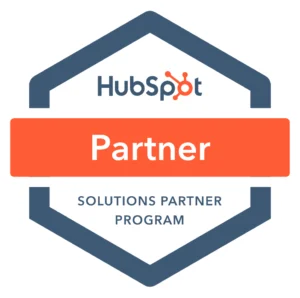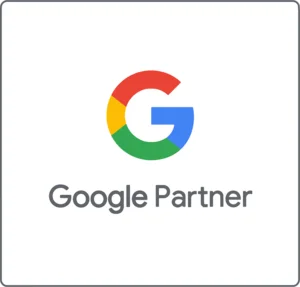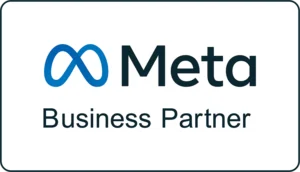The agency cost of managing your Google Ads can vary widely and will depend on a number of factors, including the competition for the keywords you’re targeting, your industry, your geographic location, the ad format you choose, and the specific goals of your campaign.
PPC Management fees can be quite confusing as they will differ from agency to agency. Understanding how Google Ads agencies price their services will help you to make the best decision when choosing your PPC Agency partner.
In a 2022 survey of digital agencies that offered PPC services, TrueClicks discovered that the average monthly management fee for a Google Ads campaign was $1,200. However, this varied widely based on the size and complexity of the campaign, as well as the agency’s level of experience and expertise.
Google Ad Agencies typically charge clients for their time and expertise in managing your Google Ads campaigns.
In this article, we’ll break down the pros and cons of the three most common PPC pricing models:
- Charging an Hourly rate
- Percentage of ad spend
- Performance-Based Pricing
- Flat Fee Pricing
1. Charging an Hourly Rate
This is one of the most common management fee structures, where you simply pay for a number of billable hours to complete a set number of tasks. This structure is easy to budget for and easy to track based on the tasks completed.
If you’re working with a PPC Agency on an ‘hourly rates’ model, make sure that you ask for a list of tasks and optimisations that will be completed each month and the expected number of hours allocated.
If you’re considering this fee structure, then you’ll want your agency to be proactive in growing your campaign and setting up experiments that will unlock new leads and opportunities, without going over the number of agreed hours.
2. Percentage of Ad Spend
This model is one of the most common payment models in Australia, and simply put your Google Ads agency charges a management fee as a percentage of your monthly Google Ads budget.
PPC agencies will charge anywhere from 10% up to 20% of your ad spend and this can be tiered based on your monthly spending levels.
Small businesses can find this model more transparent as they can align their monthly management costs with their Google Ads budget.
The main issue with this type of fee structure is that it can incentivize your PPC manager to focus on increasing your total ad spend rather than improving your campaign performance. This fee structure is also only suited to larger companies that tend to have a higher monthly ad spend.
3. Performance Based Pricing
This type of fee structure is best suited to businesses that are targeting high-value but low-volume leads. In this scenario, the risk sits with the agency, as they will only get paid when they deliver more leads. Unfortunately, this pricing model can lead to quantity over quality which means that you’ll spend more time chasing low-value leads and this will lower your ROI.
For this pricing model to work you need to be clear on what the “lead” is defined as, and if possible you should also agree to a lead-to-customer conversion rate but this will rely on greater transparency from your side as to lead conversion quality.
This will swing both ways too, if your agency is sending good quality leads but your processes mean that you’re not converting those leads, then you could see your PPC Agency walk away from the account too.
As a side note here, the Google Reps who call with “advice”, are closely aligned with a performance-based model. Find out why we think that Google Reps don’t care about your business results.
4. Flat Fee Structure
At Eurisko, we use a flat fee structure that has two tiers. The reason that we prefer this model to manage your PPC campaign is that it’s transparent, it’s easy for you to manage and our fees are not tied to your ad spend.
“What about performance?”, I hear you ask. Well, our performance is intrinsically linked to your Google ads campaigns performance. Simply put, if we don’t deliver on your campaign goals then you’re going leave, and we don’t want that.
The risks associated with a flat fee structure are similar to the models above, but you need to be careful of being locked into long-term contracts or managing expectations if your business is seasonal.
If you’re interested in finding out more about Eurisko’s flat fee lead structure, ask us for a free Google Ads management quote ask us about our search engine optimization capability, too.
Alternatively, you can find out more about what to expect when you trust Eurisko with your Google Ads management.
How can you mitigate the cons of each fee structure?
There are several things that you can insist upon, that will help you to reduce the risk that we outlined in each of the Google Ads management costs above.
Regular Communication
This is super important as the quicker we know about how your traffic or leads are converting the better. Our Google Ads managers are always available via email and phone, as well as sending out monthly Looker Studio reports and scheduling regular meetings to discuss performance. The more information the better.
Make Sure You Own Your Google Ads Account
This one pisses me off no end. Make sure that your Google Ad Account (and all of your Google Accounts) is set up using your name and your Google Account ID. DO NOT and I REPEAT! DO NOT set your account up under your agency’s account list.
There are several reasons why you should retain 100% control:
- Your Google Ads account will build up its reputation and quality score over time. The longer you run your ads, the more history you will have and this should translate into a better quality score – provided your campaigns are set up and managed correctly. Your Google Ads account should also be linked to your GA4 (Google Analytics), Search Console, Google Tag Manager and Merchant Center accounts.
- Greater transparency over ad spend. If you own your account then you control when the bills are paid and you also know how much your PPC Management will cost if you’re on the % of spend model.
- Agencies who own your account will keep your account. That’s correct. We have had to deal with the fallout with several PPC agencies, who simply claim that your account belongs to them as it’s their IP (Intellectual Property) that went into managing the account. Simply put, bollocks. If you pay us for a service, then you’re going to get the best service that we can provide. It’s “us” against your competitors!
- Your Account Manager is actually set up to provide full access. You can add your PPC management agency as a user to your account will full access, or our preference is that we request access to your Google Ads via our MCC account.
This way you own the account, and should the day come, you can remove us from your account too.
Hopefully, this has helped to shed some light on how to negotiate the structure of your PPC management costs. This really is a two-way partnership between the client and the agency so make sure that you understand the agency’s ethos and set clear expectations before signing a long-term contract.
And if you think you’re paying too much for your PPC management or if find out how we can fix your current google ads performance, please ask us for a free Google Ads management quote and find out more about Eurisko’s flat fee Google Ads structure that will improve the ROI of you current campaign performance.
Based in Perth, Eurisko is a strategic digital agency with a team of dedicated Google Ads consultants who are ready to help provide more value and greater success to your PPC campaigns.
With over 20 years of PPC management experience, we have clients across Australia including Perth, Sydney, Melbourne, and Brisbane.




